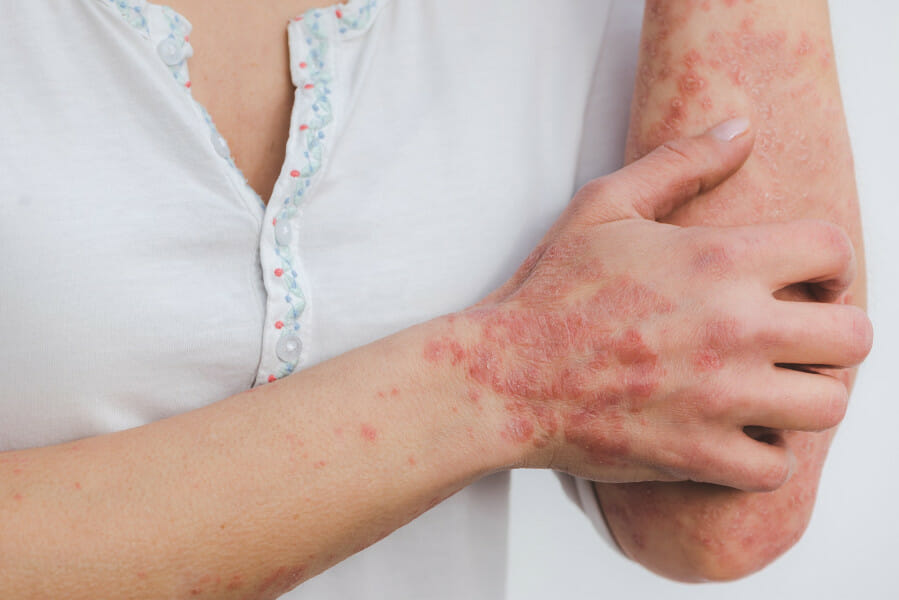Psoriasis and The Best Treatments That I Recommend After Being A Psoriasis Specialist For 17 Years
Orit Markowitz, MD, a board-certified dermatologist based in New York City, has specialized in treating psoriasis for more than 17 years. One common misconception she has noticed among her patients is that psoriasis is just a skin problem. Dr. Markowitz emphasizes that psoriasis is a chronic condition that involves the immune system and requires comprehensive treatment.
Many individuals with psoriasis have attempted to self-manage the condition by attempting to remove the thickened scales on their own, which can worsen the skin and overlook the underlying cause of psoriasis. Dr. Markowitz stresses the importance of holistic treatment for psoriasis due to its systemic nature.
In recent years, advancements in psoriasis technology have made treatments more accessible. Dr. Markowitz shares her recommended treatments for psoriasis based on her extensive experience.
What is psoriasis?
Psoriasis is characterized by the overgrowth of skin cells in the top layer of the skin due to an overactive immune system. It typically presents as a rash with silvery scaling and commonly affects areas like the elbows, knees, scalp, and nails. Severe psoriasis can have systemic effects beyond the skin, impacting other body systems and leading to conditions like heart disease and joint damage.
What are the psoriasis treatments that actually work?
Historically, psoriasis treatments varied in effectiveness and safety. However, advancements in technology have led to more evolved and effective treatment options for psoriasis. Dr. Markowitz emphasizes the importance of personalized treatment plans tailored to each patient.
1. Biologics
Biologics are medications that target the immune system pathways responsible for psoriasis without affecting the rest of the body. They are administered through at-home injections and are effective in managing the inflammatory response associated with psoriasis.
2. Light therapy
Narrowband UVB therapy is a safer alternative to previous intensive phototherapies for psoriasis. It helps suppress the immune pathway leading to skin overgrowth without the same skin cancer risks associated with previous UV treatments.
3. Topicals
For mild cases of psoriasis, over-the-counter topicals like oatmeal washes and coal tar shampoo can provide relief. Other anti-inflammatory ingredients such as safflower oil, tea tree oil, and cannabis formulations may also help manage symptoms. However, it is essential to consult with a healthcare professional to ensure proper treatment.
4. Lifestyle changes
Adopting a healthy lifestyle can complement psoriasis treatment by managing triggers such as stress, unhealthy eating habits, and lack of exercise. While psoriasis is primarily genetic, lifestyle factors can impact the severity of symptoms.
What is the future of psoriasis treatments?
Ongoing advancements in psoriasis treatments hold promise for innovative approaches. Dr. Markowitz is involved in research using non-invasive imaging to monitor treatment progress and tailor care plans accordingly. With new topical, oral, and injectable medications available, treatment can be customized to suit individual needs and improve outcomes.

















